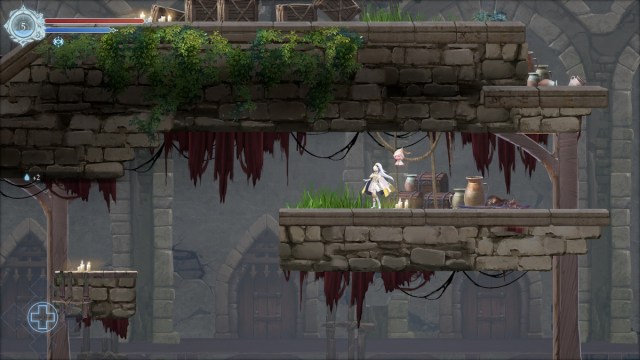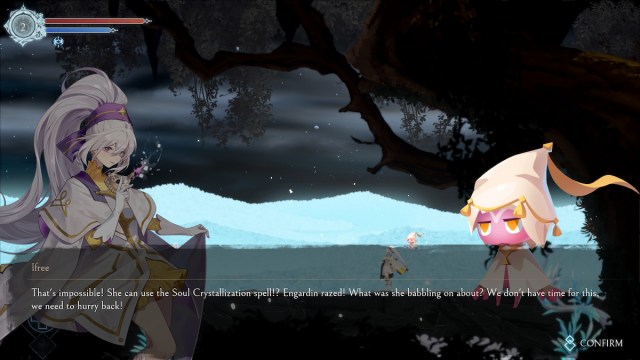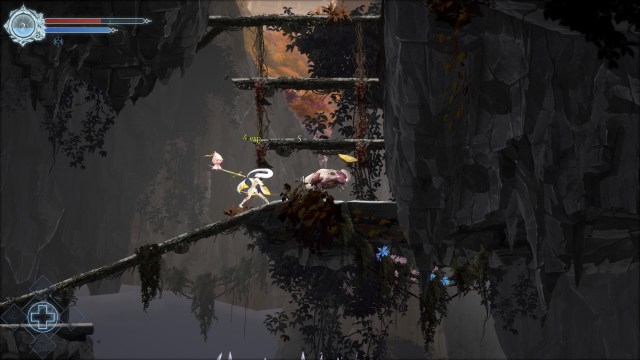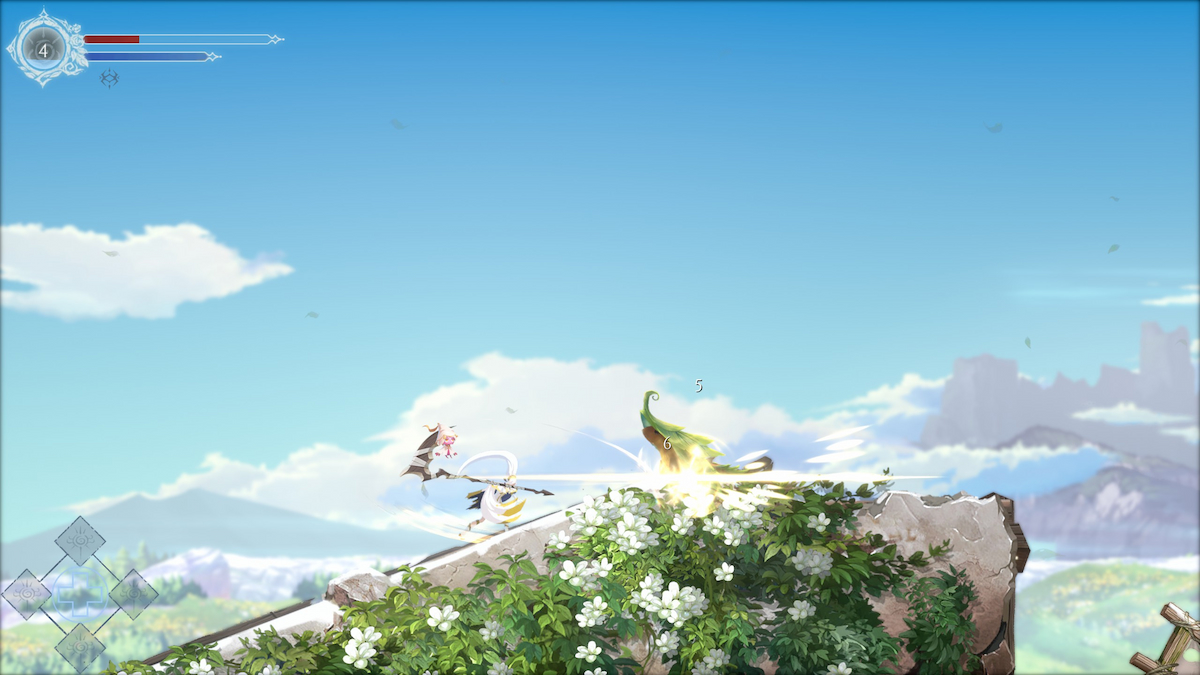A looker among the Steam Next Fest demos
Anyone making a Metroidvania in the current year needs to come prepared. Between modern legends like Hollow Knight and classics like Symphony of the Night, it’s hard to stand out in this crowded field. The fact that Afterimage even caught my attention among the Steam Next Fest entries is an achievement in and of itself. But I mean… just look at it.
Coming to us courtesy of Aurogon Shanghai, Afterimage is an absolute stunner. With gorgeous backgrounds and fluid animations, this title offers a treat for the senses from the moment you hit start. Additionally, the Steam description promises 150 enemy varieties, several build options, and an estimated 25 hours of gameplay. Afterimage sounds great on paper, but as anyone with opposable thumbs knows, a game’s quality is all about the execution. After playing the demo, I can confidently say that Afterimage is a game worthy of your attention. Whether or not it is worthy of your time remains to be seen.

It has the basics down pat
The first thing you’ll notice about Afterimage is that it leans closer to the “vania” than the “Metroid.” When you open your main menu, you’re greeted with seven equipment slots, a dedicated inventory for consumable items, space for what I assume are crafting materials, and a massive skill tree. There is an enticing level of replayability teased by these systems, and it made me wonder how diverse builds might get in Afterimage’s full release.
Even with the scant options available in the demo, I enjoyed the customization it offered. You have two equipment slots dedicated to weapons, and each are usable in tandem. I spent most of my time using slower scythes and greatswords that had longer reach, but I always kept a fast short sword on hand to quickly deal blows when an enemy made itself vulnerable. There wasn’t a ton of depth to the combat, but the controls are responsive enough to keep it satisfying. My only notable gripe here is that your character needs to finish attack animations while ducking before she can get back up, creating awkward situations when I needed to quickly dodge.
It really can’t be overstated how pretty this game is. The areas in the demo alone showcase diverse vistas that bring the world of Afterimage to life. Enemies are unique and display ample personality, even if they take inspiration from titles like Dark Souls and NieR: Automata. Also, the level design is robust and features many secrets to backtrack to. It’s important for exploratory games to have things to… well, explore, and Afterimage genuinely feels open. This is a world I could see myself exploring for hours. That said, I can’t help but worry about how those hours would be spent.

Souls-y, but not Soulslike
Unfortunately, Afterimage drops the ball in a few departments.
First, the story. Afterimage is clearly going for a vague Souls-style plot, which sharply contrasts with the fully voiced cutscenes that halt the action. Characters use so many fantasy terms without explanation that I can’t even describe the plot, let alone get invested in it. If you remember how confusing Final Fantasy XIII got with its l’Cie nonsense, that’s what Afterimage feels like.
I can forgive a tripe plot, but Afterimage’s major issue is its balancing. For the absolute beginning of the game, enemies take way too long to kill on average. Most foes typically needed a good eight smacks to go down, even using the strongest attacks available to me. Remember how bats in Symphony of the Night were like popcorn that you could kill in a single hit? The equivalent of those enemies takes four hits in Afterimage. I’d accuse the game of encouraging EXP farming, but even several level ups weren’t enough to improve the game’s pace.
Afterimage clearly wants to be a tough game, but this feels tough for the wrong reasons. Most enemies have one attack, so it’s not like dodging is an issue. In fact, the majority of hits I took were because I tried to animation cancel my attacks in hopes of making foes die faster. Meanwhile, the bosses have relatively sane HP meters, but their attack patterns can get stupidly sporadic. For example, the demo’s final boss has one attack where she dashes between two portals and then abruptly appears over you to score a quick hit. There’s no telegraph that says “oh, she might appear above me and attack in a specific direction,” you just need to get hit with it enough to know it’s coming.
Moments like these leave me with mixed feelings, since beating a boss in Afterimage genuinely does feel satisfying. I’m just worried the game could use these design choices to artificially elongate its playtime.

Should you play Afterimage?
As a demo, Afterimage gives you a satisfying chunk of content to sink your teeth into. Finishing the two chapters included took me 90 minutes, which provided enough time to establish how the final game will feel. I was definitely ready to keep playing, but I wasn’t sad that it ended either.
Taking a look at the game’s discussion page on Steam, the developers are monitoring player feedback and are actively responding to questions and comments. On one hand, I can’t imagine much will change between the demo and the finished product. The game launches on April 25th, so this build must be nearly complete. On the other hand, Afterimage is close to being a genuinely special game. While the story likely is what it is, just a few gameplay tweaks would be enough to give Afterimage a satisfying pace. Even if the boss design remained the same, I’d gladly take tense enemies that are dispatched quickly over the ones in the current game.
If the game interests you and you’ve read this far, I’d say give the demo a shot. As it stands, I could see Afterimage working best as a handheld experience for people more into the RPG elements, who want to collect rare weapons and max out talent trees. It will launch on all major consoles, so I’ll be curious to see if this title runs well on Switch. Otherwise, I’d say keep an eye on this one. It’s debatable if Afterimage will match the high bar set by other Metroidvanias. But if you’ve played all the major genre staples and want more, you could do much worse than this.








